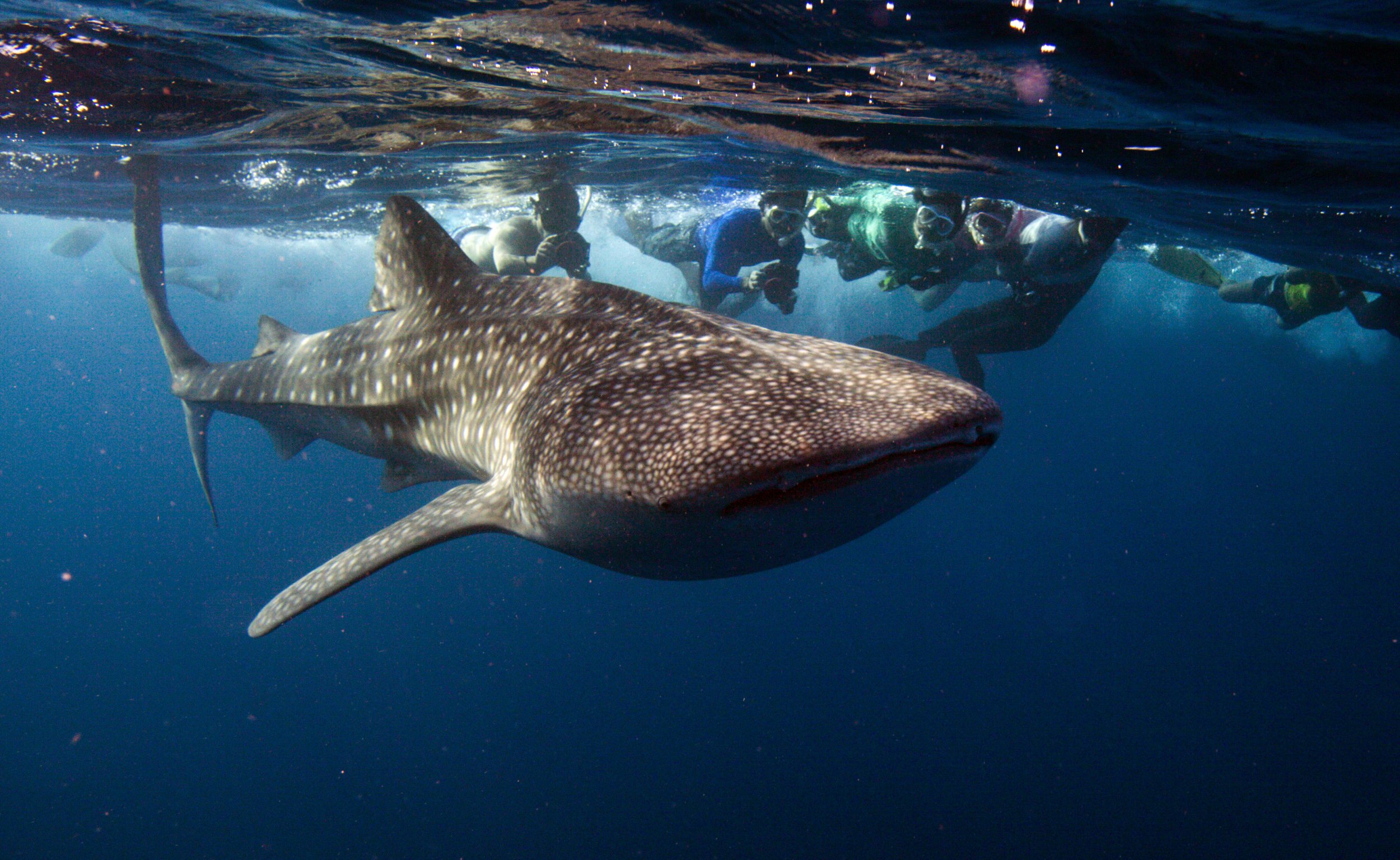
If you saw a 15-ton, 40-foot-long, rapidly moving animal eating its prey on land, your first thought probably wouldn't be "let me jump on its back." But put it in the water and you have exactly the actions of two Florida teenagers.
Cody Garland and MicKayla Burke were fishing in Destin, Florida, when they spotted a whale shark and decided to jump on its back. The grabbed on to its dorsal fin and held on for a 20-second ride while a friend filmed and photographed them.
In the video posted by Garland online and broadcast by local news stations, the shark is seen bobbing to either side, probably in an effort to throw the annoying human off its back.
Whale sharks are the biggest shark in the world and like to roam around alone, for the most part. When they feed, they meet up with fellow whale sharks to enjoy a meal of plankton. While they don't have the same stigma as great white sharks, their mouths are still about 4 feet wide, and their enormous weight could certainly injure a human. This is why you shouldn't be riding them.
Garland and Burke aren't the first Floridians to try to ride a sea creature. Manatee riding is such a problem in Florida that the state has made it illegal under an animal protection act. It carries a maximum sentence of 60 days in jail. So stay off those manatees or you could be doing time.
Whale sharks, however, are not protected by such laws.
"It isn't illegal, but it's inherently dangerous," explains John Carlson, a shark expert with the National Oceanic Administration. "It's just foolish to climb on the back of a 40-foot animal in the water. They are very large, they turn very quickly, you can get stuck underneath it, you can be hit by a fin. You are also, of course, harassing the animal."
Last June, whale shark rider James Bostwick hopped on the back of one in the Gulf of Mexico and rode it for 30 seconds. He then declared on Facebook: "Redemption for all the naysayers that said I was illegal!" after he found out whale shark riding is legal, just extremely dumb and ill-advised.
In Bostwick's case, a friend also took a video. And of course, just as with Garland and Burke, local news went nuts for it and it gained some Internet notoriety. It's this "Do it for the Vine" mentality that is encouraging whale shark riding, Carlson says.
"It may have been happening for years, but it wasn't as documented. Now everyone wants a YouTube video to tweet of them riding on a whale shark. Most people say it's really cool but don't realize what they're doing to the animal," the shark enthusiast told Newsweek.
Little is known about what riding a whale shark does to it, as research has not been done. "We don't know the long-term effects of this," Carlson says. "They might be feeding or migrating. Climbing on its back is interrupting its normal behavior."
So please, Floridians: stop riding whale sharks. And manatees. Really, just leave sea creatures alone. They have better things to do than be your personal water taxi.
Uncommon Knowledge
Newsweek is committed to challenging conventional wisdom and finding connections in the search for common ground.
Newsweek is committed to challenging conventional wisdom and finding connections in the search for common ground.
About the writer
Polly Mosendz is a breaking news reporter for Newsweek. She was previously a staff writer for The Wire and associate ... Read more
To read how Newsweek uses AI as a newsroom tool, Click here.








